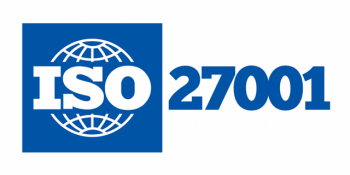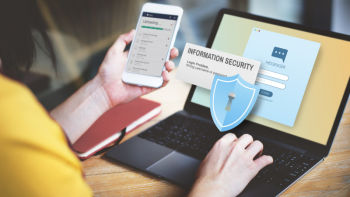DDLS is delighted to announce its partnership with PECB to distribute a range of new Information Security training courses in Australia. This partnership will enable both DDLS customers to achieve a more comprehensive understanding of ISO standards, thereby delivering stronger learning outcomes.

Jon Lang, CEO at DDLS said “We are very excited to have signed a partnership agreement with PECB to be able to supply additional Information Security training to our existing cybersecurity portfolio. As Australia’s largest and oldest ICT training organisation, DDLS is committed to delivering in-demand cybersecurity courses to ensure professionals and organisations alike are equipped to deal with today’s changing technological environment.”
“The announcement of this partnership agreement is an important milestone for us and our customers. The aim of PECB’s partnership has always been to provide the best services in the market and help customers meet their needs,” said Tim Rama, the CEO of PECB. “I am pleased to know that PECB and DDLS will be working together for our customers’ benefit. Providing our services to people in Australia through DDLS is a great opportunity for us to also expand our network of professionals,” concluded Rama.
What is ISO 27001?
Sometimes called ISO EIC 27001, it is the international standard for managing information security. It was originally published by the International Organisation for Standardisation (ISO) and the International Electrotechnical Commission (IEC).

ISO/IEC 27001 assists professionals in understanding the practical approaches that are involved in the implementation of an Information Security Management System that preserves the confidentiality, integrity, and availability of information by applying a risk management process.
Therefore, implementation of an information security management system that complies with all requirements of ISO/IEC 27001 enables an organisations to assess and treat information security risks that they face.
Certified ISO/IEC 27001 individuals will prove that they possess the necessary expertise to support organisations implement information security policies and procedures tailored to the organisation’s needs and promote continual improvement of the management system and organisations operations.
How do you get an ISO 27001 certification?
The process requires that individuals within the organisation sit for training courses with the goal of preparing the business for an audit. This preparation includes a review of information systems and security procedures.

After this, an independent audit will verify if the organisation adheres to requirements for establishing, implementing, maintaining and continuously improving your information security management system (ISMS) and keeping information assets secure. Such information assets can include your company’s financial information, intellectual property, employee details or information entrusted by partners and third parties.
Rising Adoption for ISO 27001 certification in Australia, New Zealand and the Philippines
Globally, the results for the ISO Survey 2020 indicate an increase ISO/IEC 27001 Information security certifications at 44,486 compared to 36,362 in 2019.
In Australia, ISO 27001 adoption has experienced steady growth. In 2016, there was a 200% increase in new certifications, totalling 531 based on the ISO Survey 2016. By 2018, the reported growth rate in adoption has been 21% according to Privasec.
And in 2020, Australia reported new 562 certifications in 2059 sites. In New Zealand, there were 66 certificates across 148 sites. In the Philippines, there were 110 certificates in 489 sites.
Australian industries that obtained ISO Information Security certification include Agriculture, Fishing and Forestry; Printing; Machinery and equipment; Electrical and optical equipment; Manufacturing; Electricity supply and Water supply.
Companies in New Zealand that hold ISO Information Security certification include those in industries like Transport, storage and communication; Information technology; Engineering services and Health and social work.
Philippine-based companies that obtained ISO Information Security certification include those in industries such as Recycling; Construction; Wholesale & retail trade, repairs of motor vehicles, motorcycles & personal & household goods; Information technology and Engineering services.
What ISO EIC 27001 training course should you take?
There are several ISO/IEC 27001 Information Security Management Training Courses that one can take depending on your specialisation, role and your end goal. DDLS currently offers two ISO EIC 27001 training courses for implementers and auditors. These are available across Australia, New Zealand and in our campus in the Philippines.
ISO/IEC 27001 Lead Implementer
5 Days at $3575 Inc GST
Includes Digital Courseware and Exam Voucher
The ISO/IEC 27001 Lead Implementer training course enables participants to acquire the knowledge necessary to support an organisation in effectively planning, implementing, managing, monitoring, and maintaining an information security management system (ISMS). This training course is designed to prepare participants to implement an information security management system (ISMS) based on ISO/IEC 27001. It aims to provide a comprehensive understanding of the best practices of an ISMS and a framework for its continual management and improvement.
ISO/IEC 27001 Lead Auditor
5 Days at $3575 Inc GST
Includes Digital Courseware and Exam Voucher
The ISO/IEC 27001 Lead Auditor training enables you to develop the necessary expertise to perform an Information Security Management System (ISMS) audit by applying widely recognised audit principles, procedures and techniques. During this training course, students will acquire the knowledge and skills to plan and carry out internal and external audits in compliance with ISO 19011 and ISO/IEC 17021-1 certification process and through practical exercises, they will be able to master audit techniques and become competent to manage an audit program, audit team, communication with customers, and conflict resolution.
About DDLS
DDLS is Australia’s largest provider of corporate IT and process training and Australia’s number one cybersecurity training provider. We partner with world-class companies to help organisations and individuals remain up to date with new processes, technology, and platforms to reduce risk and enable efficient business practices. DDLS promotes a balanced approach to training with a focus on the key areas of Technology, Process and People.

We provide extensive training options tailored to your organisation’s needs – from vendor-certified courses to customised training, including bespoke in-house developed courses. Contact our team to learn more about our information and cybersecurity courses. You can also download our cybersecurity brochure here.
About PECB
PECB is a certification body which provides education and certification under ISO/IEC 17024 for individuals on a wide range of disciplines. As a global provider of training, examination, and certification services, PECB offers its expertise on multiple fields, including, but not limited to, Information Security, Privacy and Data Protection, Business Continuity, Quality and Service Management, Risk Management, Health and Safety, and Sustainability.
Source:
https://www.ddls.com.au/blog/ddls-and-pecb-partner-to-deliver-iso-27001-information-security-training/







